Find Help
More Items From Ergsy search
-

BSL - Diagnosis of obsessive compulsive disorder (OCD)
Relevance: 100%
-
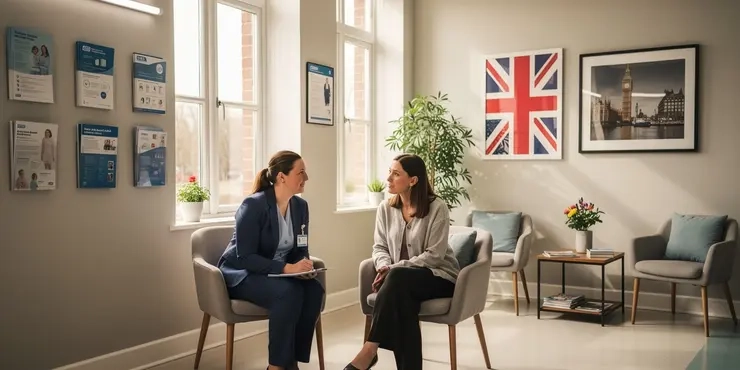
BSL - Introduction to obsessive compulsive disorder (OCD)
Relevance: 98%
-
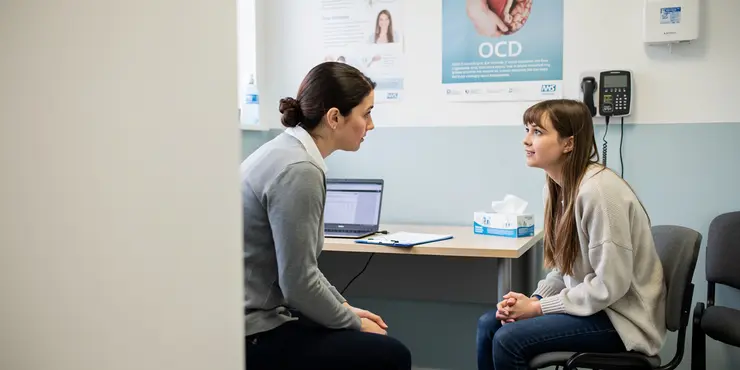
Clara Strauss: What is Obsessive Compulsive Disorder OCD
Relevance: 97%
-
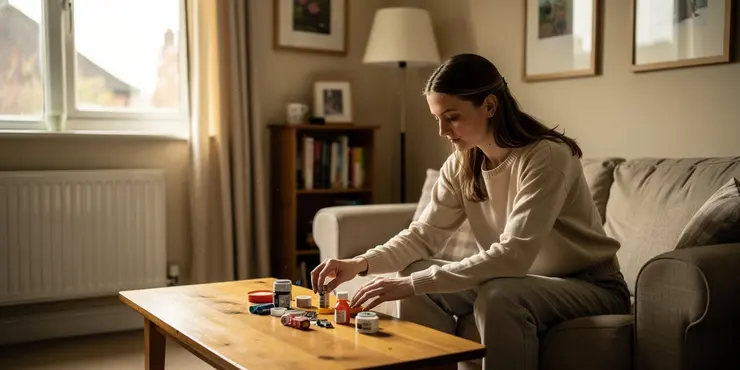
OCD
Relevance: 63%
-
Can eating disorders occur with other mental health conditions?
Relevance: 32%
-
What are common symptoms of eating disorders?
Relevance: 26%
-
What is an eating disorder?
Relevance: 25%
-
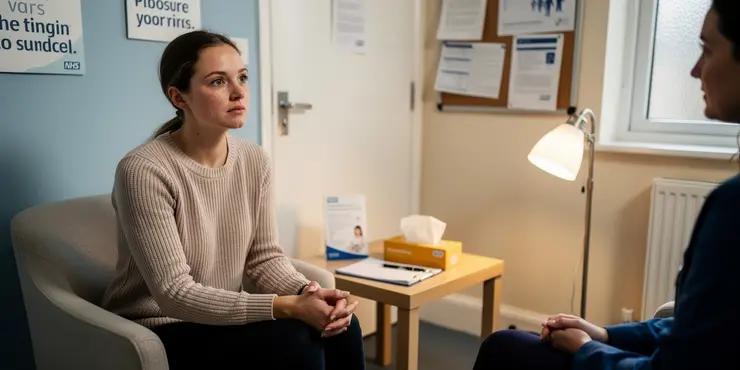
How do eating disorders affect mental health?
Relevance: 24%
-
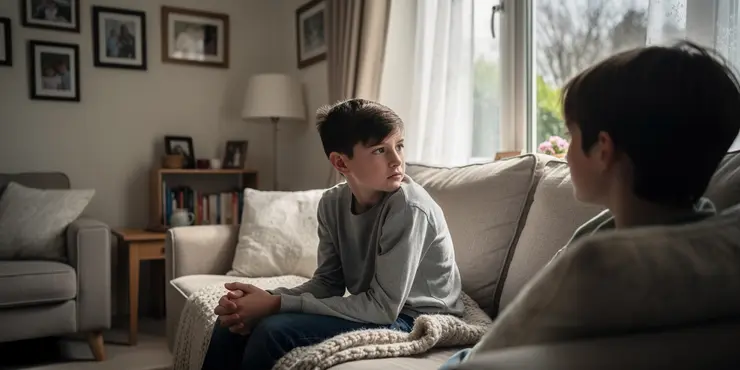
What type of anxiety do children and teenagers experience?
Relevance: 24%
-
What is body dysmorphia and how is it related to eating disorders?
Relevance: 23%
-
What are the early warning signs of an eating disorder?
Relevance: 23%
-
Are there preventative measures for eating disorders?
Relevance: 21%
-
Who is at risk for developing an eating disorder?
Relevance: 21%
-
What is an Eating Disorder?
Relevance: 20%
-
How can someone seek help for an eating disorder?
Relevance: 19%
-
Are eating disorders only about food?
Relevance: 19%
-

Eating disorders: treatment
Relevance: 18%
-
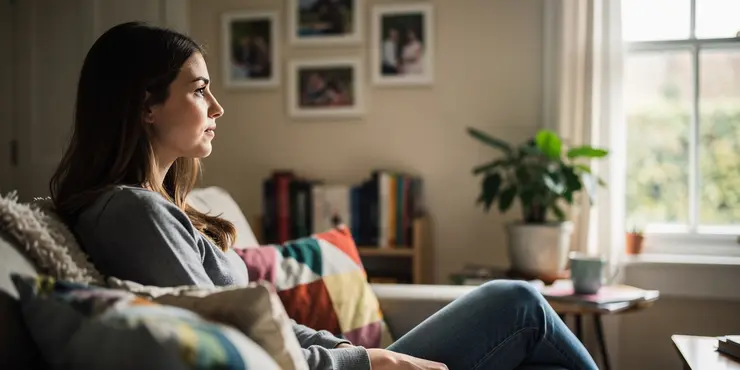
Living with Bipolar Disorder
Relevance: 18%
-
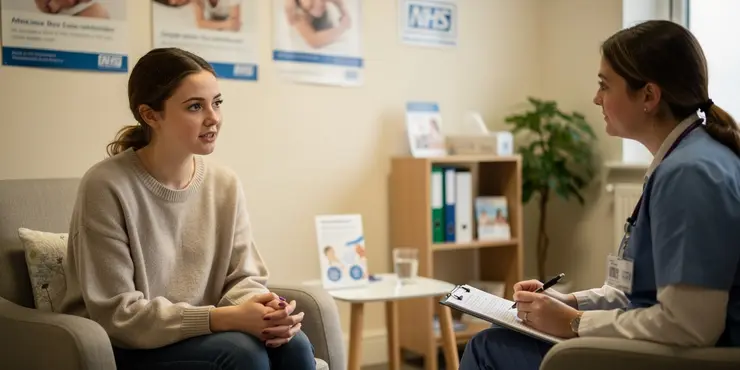
What is the impact of eating disorders on physical health?
Relevance: 18%
-
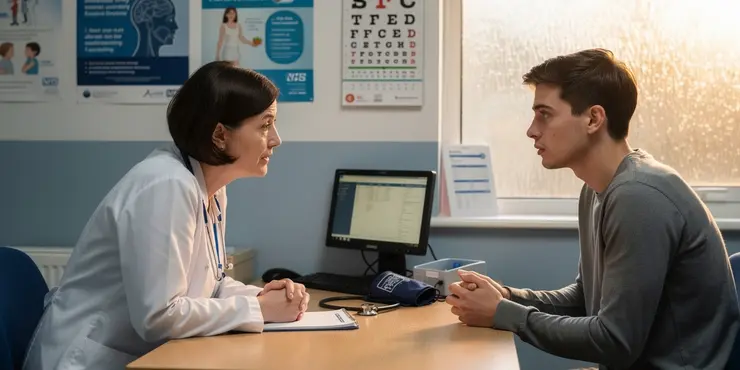
BSL - Diagnosis of panic disorder
Relevance: 17%
-
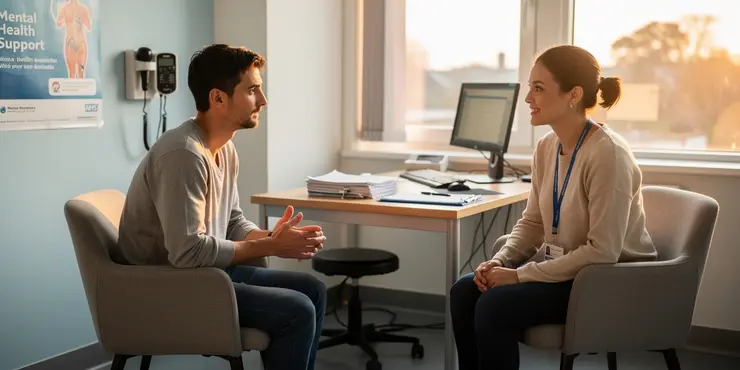
BSL - Causes of panic disorder
Relevance: 17%
-
How are eating disorders diagnosed?
Relevance: 17%
-
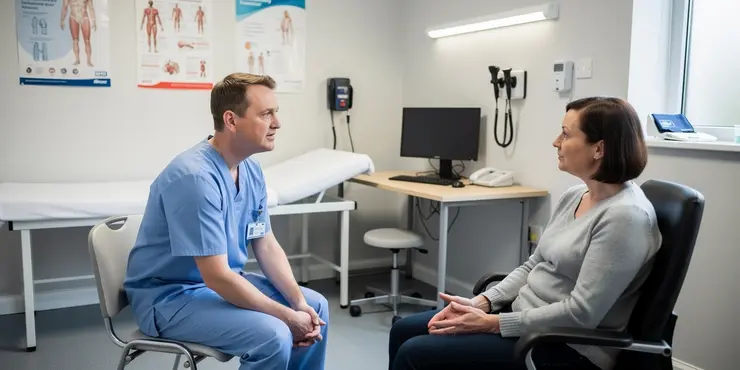
BSL - Introduction to panic disorder
Relevance: 17%
-
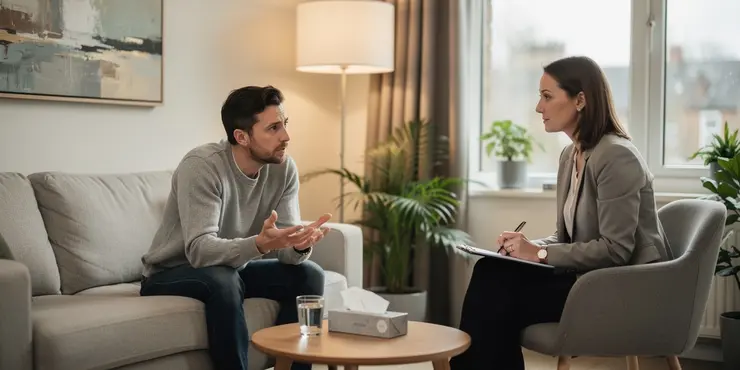
BSL - Treatment of panic disorder
Relevance: 17%
-
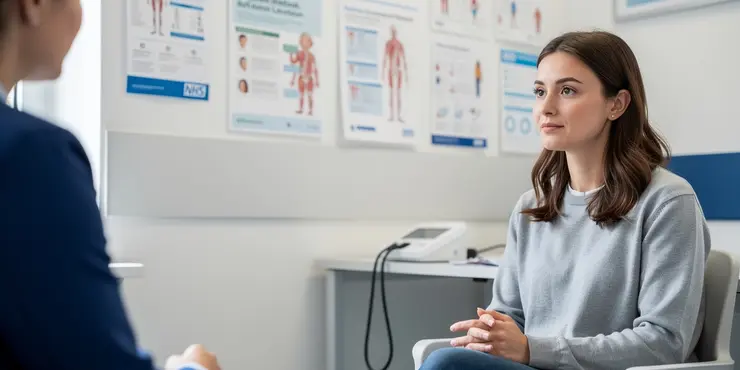
The treatment approach for an eating disorder
Relevance: 17%
-
Can eating disorders be treated?
Relevance: 17%
-
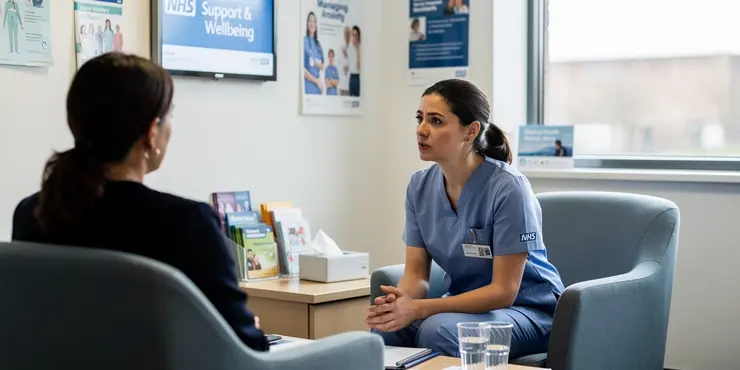
BSL - Symptoms of panic disorder
Relevance: 17%
-
What are the main types of eating disorders?
Relevance: 17%
-
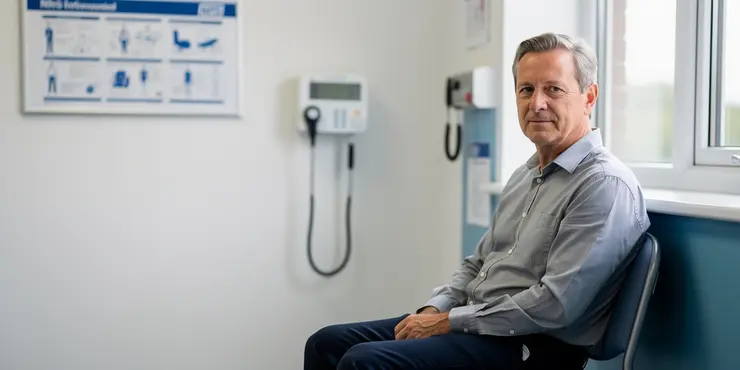
Bipolar disorder: Rod's story | NHS
Relevance: 16%
-
Is it possible to recover from an eating disorder?
Relevance: 16%
-
What is health-related anxiety?
Relevance: 16%
-
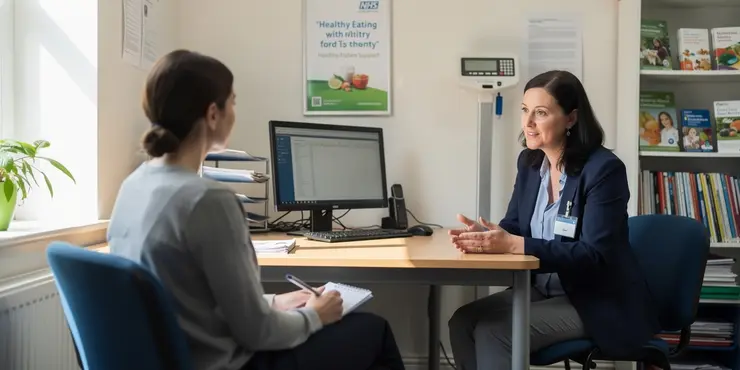
Jess Rann - Specialist Eating Disorders Dietitian
Relevance: 16%
-
What is the role of therapy in treating eating disorders?
Relevance: 16%
-
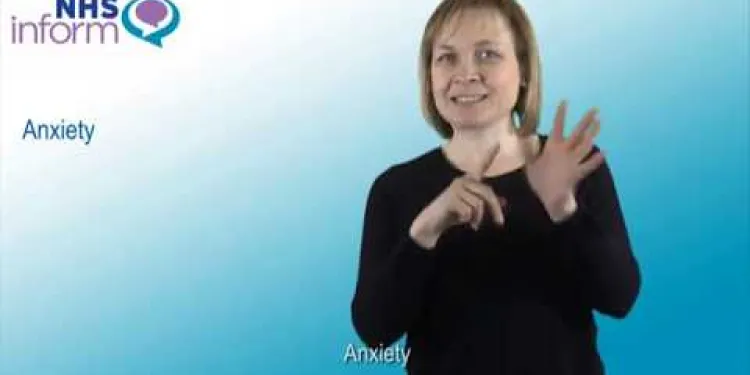
Generalised anxiety disorder (GAD)
Relevance: 16%
-
What are the long-term effects of untreated eating disorders?
Relevance: 16%
-
What are some common myths about eating disorders?
Relevance: 16%
-
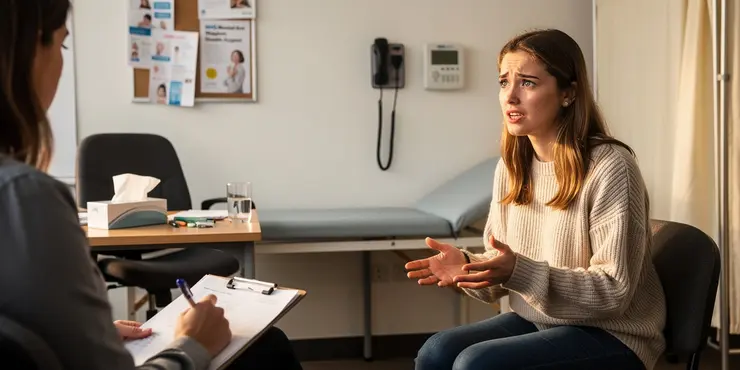
Short Films About Mental Health - Personality Disorders
Relevance: 16%
-
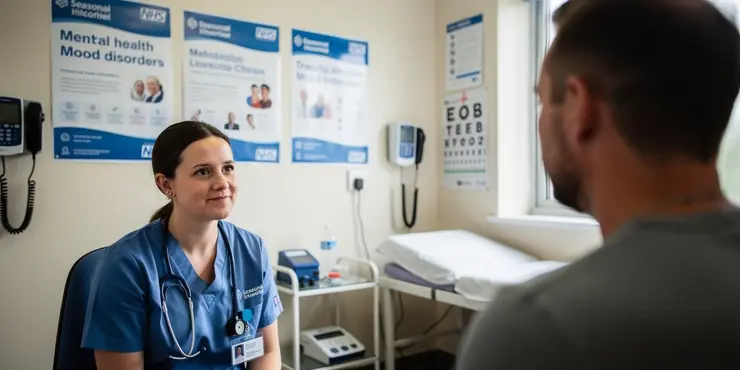
How common is Seasonal Affective Disorder?
Relevance: 15%
-
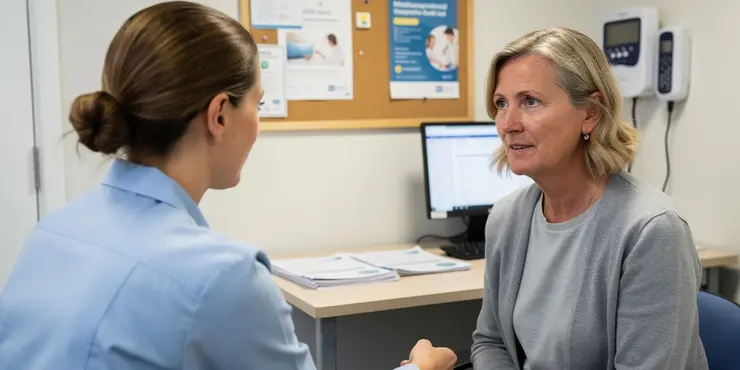
What is seasonal affective disorder - or SAD?
Relevance: 15%
-
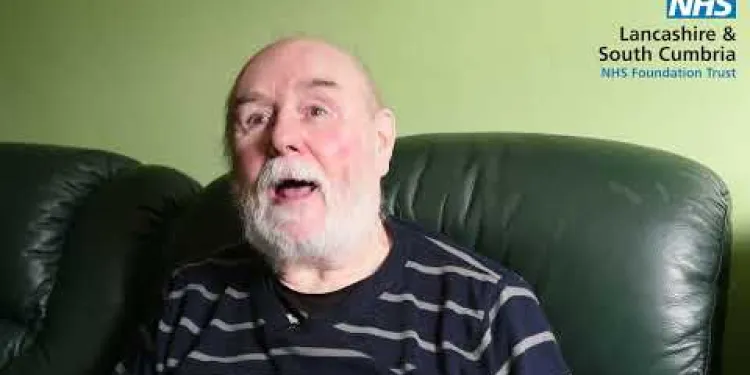
Steve Green tells his story on living with a hoarding disorder
Relevance: 15%
What is Obsessive Compulsive Disorder (OCD) by Clara Strauss
Understanding OCD
Obsessive Compulsive Disorder (OCD) is a mental health condition characterized by unwanted, recurring thoughts (obsessions) and repetitive behaviours or mental acts (compulsions). These obsessions and compulsions can significantly interfere with daily life and cause considerable distress. According to the NHS, it is estimated that OCD affects around 1-2% of the UK population, making it a relatively common condition.
Symptoms of OCD
Symptoms of OCD can vary widely but generally include persistent and distressing thoughts, images, or urges. Common obsessions might involve fears about contamination, harming others, or a need for symmetry. Compulsions are the actions taken to relieve the anxiety caused by these obsessions, such as excessive hand washing, checking, counting, or arranging items. It's crucial to understand that these behaviours are often driven by a desire to prevent a feared outcome, even if it's unrelated to the actions themselves.
Causes of OCD
The exact cause of OCD is not fully understood, but it is believed to result from a combination of genetic, neurological, behavioural, cognitive, and environmental factors. Studies have shown that OCD can run in families, suggesting a genetic link. Brain imaging research has also indicated abnormalities in certain areas of the brain and imbalances in neurotransmitters like serotonin. Environmental stressors and learned behaviours could also play a significant role in the development of OCD.
Treatment Options
Several effective treatment options are available for OCD. Cognitive Behavioural Therapy (CBT), particularly a form called Exposure and Response Prevention (ERP), is widely considered the most effective psychotherapeutic treatment. This therapy helps individuals face their fears and reduce their reliance on compulsive behaviours. Medications, specifically selective serotonin reuptake inhibitors (SSRIs), can also be beneficial in managing symptoms. For those in the UK, the NHS provides various support services, including referrals to specialists and access to CBT.
Living with OCD
Living with OCD can be challenging, but with appropriate treatment and support, individuals can manage their symptoms and lead fulfilling lives. It's essential for sufferers and their families to seek professional help and not be afraid to discuss their condition openly. Community resources, support groups, and educational materials can provide valuable assistance and reduce feelings of isolation.
What is Obsessive Compulsive Disorder (OCD) by Clara Strauss
Understanding OCD
Obsessive Compulsive Disorder, or OCD, is a health problem of the mind. It causes thoughts that you do not want, called obsessions. It also causes you to do things over and over, called compulsions. These thoughts and actions can make daily life hard. In the UK, about 1 to 2 out of every 100 people have OCD. This means OCD is common.
Symptoms of OCD
People with OCD have thoughts that do not go away. These can be pictures in their mind or things they feel they have to do. Some worries might be about getting dirty or being very tidy. To stop being scared, people might wash their hands too much or check things many times. They do these actions to feel safe, even if it does not make sense.
Causes of OCD
No one knows exactly why OCD happens. It might be because of family genes, how the brain works, or stress from the world around. OCD can run in families, so it might be genetic. The brain of someone with OCD might look different in pictures. Chemicals in the brain like serotonin might also be part of it. Stress and habits we learn can add to OCD, too.
Treatment Options
There are good ways to help people with OCD. One way is called Cognitive Behavioural Therapy, or CBT. A special part of CBT, called Exposure and Response Prevention (ERP), helps a lot. This therapy helps people get used to what they are afraid of and stop the compulsive actions. Medicines like SSRIs can also help by changing chemicals in the brain. In the UK, the NHS can help people find doctors and get CBT.
Living with OCD
Having OCD can be tough, but treatment and support can make it easier. With help, people can feel better and live happy lives. It is important for people and their families to talk to doctors and not feel ashamed. Community groups, support friends, and learning more about OCD can help people feel less alone.
Frequently Asked Questions
What is Obsessive Compulsive Disorder (OCD)?
Obsessive Compulsive Disorder (OCD) is a mental health condition where a person has obsessive thoughts and compulsive behaviours.
What are common symptoms of OCD?
Common symptoms include repetitive thoughts (obsessions) and repetitive behaviours (compulsions) such as excessive handwashing, checking, or cleaning.
How is OCD diagnosed?
OCD is usually diagnosed by a trained mental health professional through a clinical assessment, including detailed interviews and questionnaires.
What causes OCD?
The exact cause of OCD is unknown, but it is believed to involve a combination of genetic, neurological, behavioural, cognitive, and environmental factors.
What treatments are available for OCD?
Treatment options include cognitive behavioural therapy (CBT), specifically a type called exposure and response prevention (ERP), and medications such as selective serotonin reuptake inhibitors (SSRIs).
Can OCD be cured?
While there is no cure for OCD, many people can manage their symptoms effectively with appropriate treatment and support.
How common is OCD in the UK?
It is estimated that around 1% of the population in the UK has OCD.
What is the difference between obsessions and compulsions?
Obsessions are unwanted, intrusive thoughts, images, or urges that cause distress, while compulsions are repetitive behaviours or mental acts performed to reduce this distress.
How can family and friends support someone with OCD?
Family and friends can support by being understanding, encouraging treatment, avoiding enabling compulsive behaviours, and learning more about the condition.
Is OCD found only in adults?
No, OCD can develop at any age, including childhood and adolescence.
What is Exposure and Response Prevention (ERP) therapy?
ERP is a type of cognitive behavioural therapy that involves gradually exposing a person to their fear while preventing the compulsive behaviour.
Are there support groups for people with OCD in the UK?
Yes, several organisations, such as OCD-UK and OCD Action, offer support groups and resources for people with OCD in the UK.
Can lifestyle changes help manage OCD symptoms?
While professional treatment is essential, lifestyle changes like regular exercise, stress management, and a healthy diet can support overall well-being and symptom management.
Is there a connection between OCD and other mental health conditions?
Yes, people with OCD may also experience other mental health issues such as anxiety, depression, or tic disorders.
Where can I find more information about OCD?
Reliable resources include NHS web pages, mental health charities like Mind, and organisations specific to OCD such as OCD-UK and OCD Action.
What is Obsessive Compulsive Disorder (OCD)?
Obsessive Compulsive Disorder, or OCD, is a condition that can make people feel worried or scared. People with OCD might feel like they have to do certain things over and over again to feel better.
For example, they might wash their hands many times or check if the door is locked many times. It is hard for them to stop doing these actions even if they want to.
If you or someone you know feels this way, talking to a doctor or a counselor can help. There are ways to make it feel better.
Using apps for relaxation and talking to someone who understands OCD can also be helpful.
Obsessive Compulsive Disorder, called OCD, is a mental health problem. People with OCD have strong thoughts that won't go away and feel they have to do certain things over and over again.
What are signs of OCD?
Here are some signs of OCD (Obsessive-Compulsive Disorder) that might help you:
- Worrying a lot about germs and washing hands often.
- Checking things over and over, like if a door is locked.
- Counting things or doing things in a certain order.
- Organizing things in a very exact way.
- Thinking the same thoughts many times.
If you need help understanding OCD, it’s okay to ask someone you trust. Tools like pictures or videos can also help explain these signs better.
Sometimes people might think the same thing again and again. They might also do the same action many times, like washing their hands a lot, checking things over and over, or cleaning too much.
How do doctors find out if someone has OCD?
Doctors can tell if someone has OCD by talking to them. They ask questions about what the person feels and does. This helps doctors understand if the person has OCD.
Doctors usually use some guides and tests. These help them see if the person's thoughts and actions match OCD signs.
If you think you have OCD, talk to a doctor. They can help you know what to do next.
Using a calendar or diary can help keep track of thoughts and feelings. This can be useful when talking to a doctor.
A doctor or nurse who knows about mental health can tell if someone has OCD. They do this by asking lots of questions and talking to the person.
Why do people get OCD?
We don't know exactly what causes OCD. But, we think it happens because of a mix of things like genes, how the brain works, behavior, thinking patterns, and things around us.
What can help someone with OCD?
If you have OCD, there are things that can help you. OCD means you have thoughts or actions that happen over and over.
Here are some ways that might help:
- Talk to a Doctor: A doctor can give you medicine to help with OCD. Medicine can make the brain feel better.
- Speak with a Therapist: A therapist talks to you about your thoughts and can help change them. This is called 'talk therapy.'
- Practice Relaxation: Doing things like deep breathing or listening to calm music can help you feel less worried.
- Use a Journal: Writing down your thoughts or how you feel each day can help you see patterns and feel better.
It’s okay to ask for help. Talking to people who understand, like a friend or family member, can also make things easier.
There are ways to help people feel better. One way is talking therapy called cognitive behavioural therapy or CBT. A special kind of CBT is called exposure and response prevention or ERP. There are also medicines that can help. These are called selective serotonin reuptake inhibitors or SSRIs.
Ask a doctor or therapist to help you find what works best for you.
Can OCD go away?
OCD stands for Obsessive Compulsive Disorder. It is a condition that makes people feel like they have to do things over and over. This can be hard to stop.
Right now, there is no magic cure to make OCD disappear completely. But, there are ways to help people feel better. Here are some things that can help:
- Therapy: Talking to a therapist can help people understand and manage their OCD.
- Medicine: Some medicines can help people feel less anxious, which can make OCD easier to handle.
- Support Groups: Joining a group of people with OCD can help someone feel less alone.
These tools can make living with OCD easier. If you think you have OCD, talking to a doctor is a good start.
There is no cure for OCD, but people can feel better with the right help. They can learn to manage their OCD symptoms.
How often do people in the UK have OCD?
OCD is short for Obsessive Compulsive Disorder. This is when people have strong worries and feel they have to do certain actions again and again.
In the UK, about 1 in 50 people might have OCD. That means if there are 50 people, 1 person might have OCD.
Here are some things that might help:
- Talk to a friendly doctor or counselor.
- You can read simple books or use special apps about feelings.
- Ask someone you trust to help you learn more.
About 1 out of every 100 people in the UK has something called OCD.
What is the difference between obsessions and compulsions?
Obsessions are thoughts that keep coming back. They can make you feel worried or scared.
Compulsions are things you feel you must do again and again. You do them to try to feel better or stop feeling worried.
Some tools that might help you relax are deep breathing or listening to calming music.
Obsessions are thoughts or pictures that pop into your head and make you upset. Compulsions are things you do over and over to try to feel better.
How can family and friends help someone with OCD?
Family and friends can help someone with OCD by being kind and patient. They can listen and talk with them about how they feel.
It helps to learn about OCD so they understand it better. Encouraging the person to see a doctor or therapist can also be good.
They should remind the person that they are not alone and that they care about them.
Using apps, books, or videos about OCD can help everyone learn. Doing fun things together can make everyone feel happy and relaxed.
Family and friends can help by being understanding. They should support getting help, avoid doing things that let the person continue bad habits, and learn more about the problem.
Do only grown-ups have OCD?
OCD is short for Obsessive Compulsive Disorder. It is not just grown-ups who can have OCD. Kids and teenagers can have it too.
Picture this: Imagine repeating actions a lot or getting very worried and needing things to be just right. That can be OCD.
If you think you or someone you know might have OCD, it is okay to ask for help. Talking to a doctor or a counselor can help a lot. They know how to help with these kinds of worries.
Some things that might help:
- Talking with someone kind
- Writing down feelings
- Doing something relaxing like drawing or listening to music
No, people can get OCD at any age. This includes when they are kids or teenagers.
If it's hard to read, try using a ruler or your finger to follow the words. Take your time and read slowly. It can help to read the sentence out loud or ask someone to read with you. You can also use a tool that reads aloud.
What is Exposure and Response Prevention (ERP) therapy?
Exposure and Response Prevention (ERP) is a type of help for your mind. It is for people who get worried a lot.
Here is what happens in ERP:
- You work with a helper called a therapist.
- You learn about what makes you worried or scared.
- Your therapist helps you face your worries a little bit at a time.
- You practice not doing the things you usually do to feel better.
ERP can be hard at first, but it helps you feel less worried over time.
Some tools that can help you with ERP are:
- Relaxing music to help you stay calm.
- Pretend practice with things that make you feel safe.
- A special friend or family member to support you.
ERP is a kind of talking therapy. It helps people face what scares them, little by little. The person learns to stop doing the things they usually do to feel better. This helps them be less scared over time.
Can people with OCD get help in the UK?
Yes, there are groups that help people with OCD in the UK.
OCD is when someone can't stop worrying about something.
Being part of a group can help you talk and feel better.
You can find groups by:
- Asking your doctor
- Looking online
- Asking someone you trust
Talking to others can make you feel less alone.
Yes, there are groups that help people with OCD in the UK. Two groups are called OCD-UK and OCD Action. They have support groups and things to help.
Can lifestyle changes help with OCD?
Yes, changing some parts of your everyday life can help with OCD (Obsessive-Compulsive Disorder). Here are some simple things that might help:
Exercise: Try to move your body every day, like walking, dancing, or playing a sport. It can help you feel better.
Sleep: Make sure you get enough sleep at night. A good bedtime routine can help.
Healthy food: Eat good foods like fruits, vegetables, and whole grains. They help your body and mind feel strong.
Quiet time: Spend a little time each day doing something calm, like reading, drawing, or just sitting quietly.
These changes can help you feel better over time. It's also good to talk to a doctor or therapist for more help with OCD.
Going to the doctor is very important. But there are other things you can do to feel better too. Try to move your body with regular exercise. Learn ways to relax and manage stress. Eat healthy foods. All these things can help you feel better and manage your symptoms.
Do OCD and other mental health problems link?
Yes, OCD might link to other mental health problems. Here is what to know: - **OCD and Anxiety**: People with OCD often feel worried or anxious. They might also have anxiety problems. - **OCD and Depression**: Sometimes, people with OCD feel very sad or hopeless. This is called depression. - **OCD and ADHD**: Some people with OCD also have trouble paying attention or sitting still. This is called ADHD. If you think you have OCD or another problem, talk to a doctor. They can help. Here are some tools that might help too: - **Relaxing Exercises**: Breathing deeply or listening to calm music can help. - **Talking to Someone**: Sharing your feelings with a friend or counselor can be good.Yes, people with OCD can also have other mental health problems. These can include feeling very worried or sad a lot of the time, or having tics, which are movements or sounds they can't control.
Here are some ways to help:
- Ask someone you trust to talk about how you feel.
- Write down your thoughts in a notebook.
- Ask a doctor or counselor for help. They know how to help with these feelings.
Where can I learn more about OCD?
You can find out more about OCD in lots of places. Here are some ideas:
- Visit a doctor or nurse. They can help you understand OCD.
- You can ask a trusted adult or teacher. They might know useful things.
- Use the internet. Look for websites like OCD-UK or Mind. These have good information.
- Read books for kids about OCD. A librarian can help you find them.
- Watch videos for kids about OCD. Ask an adult to help you find them online.
Remember, it's okay to ask for help if you need it. Talking to someone can really help.
Good places to find help are NHS websites and mental health charities like Mind. There are also special groups for OCD, like OCD-UK and OCD Action.
Useful Links
This website offers general information and is not a substitute for professional advice.
Always seek guidance from qualified professionals.
If you have any medical concerns or need urgent help, contact a healthcare professional or emergency services immediately.
Some of this content was generated with AI assistance. We’ve done our best to keep it accurate, helpful, and human-friendly.
- Ergsy carfully checks the information in the videos we provide here.
- Videos shown by Youtube after a video has completed, have NOT been reviewed by ERGSY.
- To view, click the arrow in centre of video.
- Most of the videos you find here will have subtitles and/or closed captions available.
- You may need to turn these on, and choose your preferred language.
- Go to the video you'd like to watch.
- If closed captions (CC) are available, settings will be visible on the bottom right of the video player.
- To turn on Captions, click settings .
- To turn off Captions, click settings again.
More Items From Ergsy search
-

BSL - Diagnosis of obsessive compulsive disorder (OCD)
Relevance: 100%
-

BSL - Introduction to obsessive compulsive disorder (OCD)
Relevance: 98%
-

Clara Strauss: What is Obsessive Compulsive Disorder OCD
Relevance: 97%
-

OCD
Relevance: 63%
-
Can eating disorders occur with other mental health conditions?
Relevance: 32%
-
What are common symptoms of eating disorders?
Relevance: 26%
-
What is an eating disorder?
Relevance: 25%
-

How do eating disorders affect mental health?
Relevance: 24%
-

What type of anxiety do children and teenagers experience?
Relevance: 24%
-
What is body dysmorphia and how is it related to eating disorders?
Relevance: 23%
-
What are the early warning signs of an eating disorder?
Relevance: 23%
-
Are there preventative measures for eating disorders?
Relevance: 21%
-
Who is at risk for developing an eating disorder?
Relevance: 21%
-
What is an Eating Disorder?
Relevance: 20%
-
How can someone seek help for an eating disorder?
Relevance: 19%
-
Are eating disorders only about food?
Relevance: 19%
-

Eating disorders: treatment
Relevance: 18%
-

Living with Bipolar Disorder
Relevance: 18%
-

What is the impact of eating disorders on physical health?
Relevance: 18%
-

BSL - Diagnosis of panic disorder
Relevance: 17%
-

BSL - Causes of panic disorder
Relevance: 17%
-
How are eating disorders diagnosed?
Relevance: 17%
-

BSL - Introduction to panic disorder
Relevance: 17%
-

BSL - Treatment of panic disorder
Relevance: 17%
-

The treatment approach for an eating disorder
Relevance: 17%
-
Can eating disorders be treated?
Relevance: 17%
-

BSL - Symptoms of panic disorder
Relevance: 17%
-
What are the main types of eating disorders?
Relevance: 17%
-

Bipolar disorder: Rod's story | NHS
Relevance: 16%
-
Is it possible to recover from an eating disorder?
Relevance: 16%
-
What is health-related anxiety?
Relevance: 16%
-

Jess Rann - Specialist Eating Disorders Dietitian
Relevance: 16%
-
What is the role of therapy in treating eating disorders?
Relevance: 16%
-

Generalised anxiety disorder (GAD)
Relevance: 16%
-
What are the long-term effects of untreated eating disorders?
Relevance: 16%
-
What are some common myths about eating disorders?
Relevance: 16%
-

Short Films About Mental Health - Personality Disorders
Relevance: 16%
-

How common is Seasonal Affective Disorder?
Relevance: 15%
-

What is seasonal affective disorder - or SAD?
Relevance: 15%
-

Steve Green tells his story on living with a hoarding disorder
Relevance: 15%


